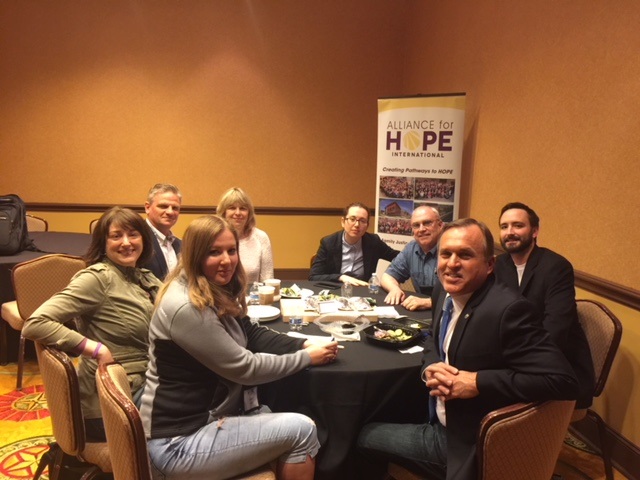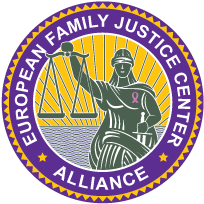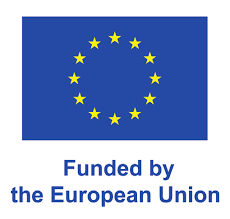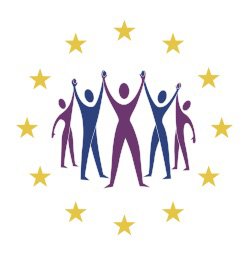Wednesday 25th of April, Fort Worth
Blog Monday 23th of April Blog Tuesday 24th of April Blog Thursday 26th of April
What happened today @

“It doesn’t matter what is in your heart, it’s about what you do”
Life time Achievement Award: Dr Oliver Williams
Dr. Oliver Williams, the founder of the Institute on Domestic Violence in the African American Community (IDVAAC) today received the 2018 Alliance for HOPE International Lifetime Achievement Award. “Oliver Williams has changed the world for thousands of victims and offenders in the course of his amazing career. He is without a doubt one of the most transformational leaders we have ever worked with,” said Alliance President Casey Gwinn.
Dr Oliver Williams speeches about the “Journey to healing: finding the path”. In a qualitative research project women, survivors of domestic violence, were interviewed about their experiences, their process of change and journey to healing. Healing is a processed all of the respondents told they looked for healing. Dr Williams recognizes 5 stages of healing, based on these interviews. The main massage is that healing is possible for many survivors.
The 5 stages of healing:
- The survivor realizes that she does not deserve the abuse and it’s not her fault. Contemplation that life can be better for her and for her children, a life free of violence and abuse.
- Her most important concern is to secure safety for herself and her children
- Survivors start to explore all the “why questions” about what happened to her: why he did this to me? What was it about me that made him choose me? Why did I choose him? How could I expose my children to his violence? How could I have tolerated it for so long? Why did I think it was my fault? Why did I think I could change him? Why did I believe he loved me? she also may question her capacity and her abilities to make choices but still she develops a plan to move forward in her live.
- She has put her plan into action and has confidences in her capacity to address most challenges, reactions and feelings that come her way . Many women journal to reflect on what she has been through. Among the gifts of healing is embracing her feelings of peace, joy and laughter when it occurs She has a desire to share her story and give back to women who also have lived with domestic violence and are trying to find their way out.
- Survivors describes it as: Let it go. survivors describe theses forgiveness of self for having been a victim. Letting go of the anger and frustration they may have felt and moving forward with their life.
Michael Mason, chief security officer Verizon communications, gave a compelling speech about accountability.
He stated: “It doesn’t matter what is in your heart, it’s about what you do”
Good intentions alone are not enough, you also have to act.
What makes men often do not rate women to the same value? They often think that they do, but their behavior shows the opposite. Diversion is not enough, it’s about inclusion: men have to include women completely.
It’s about accountability, you are accountable for your own actions, and you have to reflex about your actions. It is about being responsible for your own actions and keeping others accountable for their behavior and actions.
90% of the perpetrators of intimate violence are male, and men have to take account of this. This reflects on your own actions (and even though you think you are doing well, reflect on your actions) and also respond to the actions of other men who treat women as second class.
After the plenary sessions, the 7 tracks of workshops continued.
Developing, measuring and reporting the impact of FJCs using Hope Theory
Chan Hellman and Michael Burke gave an overview of the outcomes of the first evaluation of Family Justice Centers (8 Californian FJCs took part):
- FJCs successfully served a significant number of survivors and addressed multiple service needs, supporting the need for co-located multi-agency
- Survivors identified FJCs as helpful, supportive, high quality and easy to access. They benefited from the safe and supportive environment, the all-under-one-roof services including therapeutic and legal needs of survivors, and individualized services.
- Partner agencies of FJCs benefitted from the staffing structure of having the “right” people available onsite from various agencies, having a shared larger goal of focusing on the needs of the survivors, more efficient handling of cases and a team approach with other partner agencies
The research didn’t focus on the outcomes about hope and the effects on the needs of the survivors on longer term.
Chan Hellman stated: We can measure outcomes, we can measure hope.
Hope is a belief that future is possible and you have the ability to make it happen.
People often think Hope is an emotion, though Hope is a thought process. Hope can be learned.
To have hope you need Willpower. Willpower is the motivation, the desire to achieve the goal.
Goals without pathways are a wish…
In this framework, FJC services are pathway of hope for survivors.
The work of FJCs is to raise willpower at the survivors, to bring willpower back.
This way survivors regain pathways to hope.
Hope is a theory of change. Motivating people to achieve their goals brings willpower and a pathway to hope.
FJC nurture hope. Often survivors have low hope at the moment of first contact, their willpower is often low and they have lack of trust.
An important issue is that survivors often focus on their experiences of failure and on the negative impact instead of reachable goals and successes. They struggle to find pathways.
As they start to experiences success and little benchmarks of success, their willpower begins to strengthen, it becomes stronger and stronger until they meet the goal.
Benchmarks of success are important: believe in pathways to achieving your goals are feed by benchmarks of achievements and success.
Willpower is not endless, we only have that much energy each day.
Willpower does have attention detractors, and unmitigated trauma is a hope robber.
To achieve hope, you can’t focus on the pathway, you have to focus on the willpower first.
We do know how to nurture hope. It’s important that survivors determine their goals, to decide themselves which goals are desirable. You can’t determine the goals for the survivors, they have town their goals and experience their desire to achieve these goals.
Goal setting is the most important in building pathways to hope, and you have to take the time it takes. Willpower is the hard work of nurturing hope.
Polyvictimization and Why it Matters & a Systematic Review of Polyvictimization Screening Tools
During this session the presenters provided an overview of polyvictimization and its impact on the life of survivors, as well as its connection with to the Adverse Childhood Experiences (ACE).
Some important highlights:
Polyvictimization describes the collective experiences of multiple types of victimizations, usually in multiple settings and at the hands of multiple perpetrators. The main reasons to look at Polyvictimization are:
- that research has shown that victimizations tend to cluster among adults and children and
- to identify survivors where polyvictimization is more of a 'condition' than an 'event' so FJC's can accurately provide services.
Polyvictimization decreases physical well-being and has a lot of similarities with the consequences that are already known in ACE.
The Polyvictimization Screening Tool, developed with financial support of the U.S. National Office for Victims of Crime broadens the framework with a trauma-informed approach and allows FJC workers to view the client in the context of their life experiences and potential risk in the future. It allows to SEE the client, asking NOT the question WHY are you here, but WHAT happened to you. It helps survivors to contextualize the trauma they have experienced.
The Polyvictimization Screening Tool has impact on the service delivery from FJC's and creates a great feedback for the FJC's. The first results from the projects are very positive. Some feedback from survivors: “thank you for asking me about my whole life”, “This explains what has been happening to me”.
Still not all questions around polyvictimization research are answered yet, there's still limited research on adult victims and there's more research needed on polyvictimization and its impact on communities of color and LBGTQ+ community. The question arises if multiple victimization by the same perpetrator, in particular in domestic violence, fall under polyvictimization?
Summarized the overall conclusion is that polyvictimization calls to every day’s trauma and has great impact on a person's well-being. It shows and underlines the importance of a Trauma-Informed Care approach in FJC's and similar cross sector collaborative models. This will strengthen resilience, hope and protective factors of survivors, their children and families. For FJC's participating in the U.S pilots it brought many changes, like: training of intake and receptionist staff on customer service and trauma-informed care, more attention towards survivors, change of the environment within the FJC's and hiring survivors to welcome new clients.
- Download: Overview of Polyvictimization
Building Relationships: Understanding the Human Connection.
The core goal of any intake is building a relation with the survivor. Trauma informed organisations focus on building mutuality between service providers and survivors and developing a community of support not only during crisis, but after the crisis. Building trust, rapport and a long-term relationship with clients is a protective factor against trauma.
During the workshop panelists discussed how their centers are focusing on building trust, rapport and professional relationships with survivors at every step. They discussed their philosophy about intake as well as the programs created to build community to survivors and their children.
The workshop started with a short video called: The World Biggest Eye Contact Experiment 2016. This video expresses the human connection.
During lunch the EFJCA team and the US FJC Alliance team had a meeting with the delegation from Moldova and discussed the possibilities of a joint support program to develop Family Justice Centers in Moldova.



